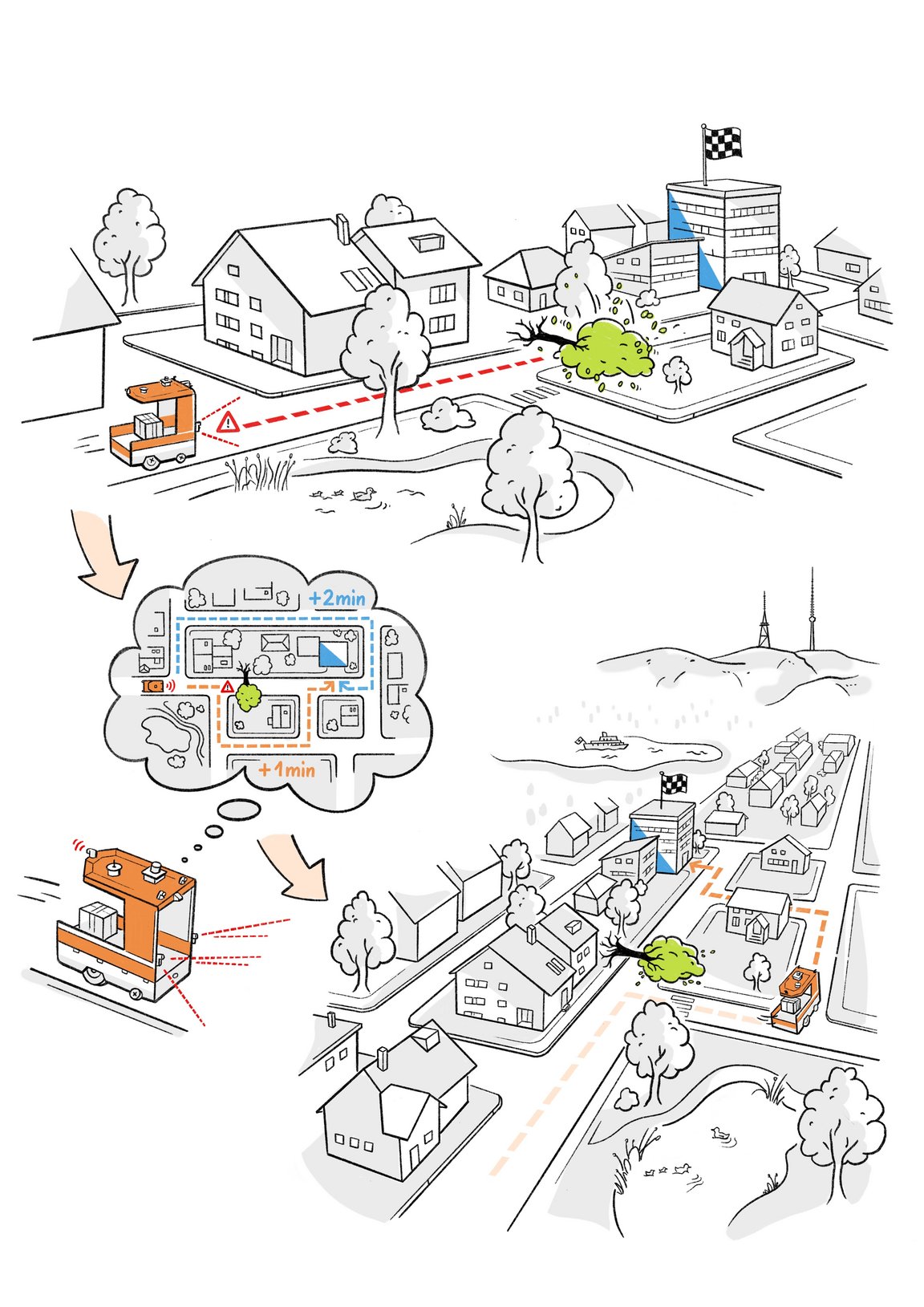Autonomous systems are systems, such as machines and processes, that can make decisions based on the situation at least partially independently. Such systems are based on continuous measurements with sensors and artificial intelligence. They act largely autonomously and can also deal with unforeseen situations. A detailed discussion of autonomous systems, including an assessment, can be found in the Technology Outlook 2021.
The emergence of information technology systems that can act autonomously and also react to unforeseen situations is challenging our previous ways of thinking. According to Joachim Buhmann, Professor of Artificial Intelligence at ETH Zurich, "more pragmatic creativity and less ideological normativity are needed to keep the economy and society fit for the future." It is also essential that we learn to think outside the supposedly unalternative framework.
There are already a considerable number of academic research groups and companies in Zurich that are active in the field of autonomous systems. Roland Siegwart, Professor of Autonomous Systems at ETH, describes the current landscape as follows: "In Zurich, there is a growing network of companies and start-ups working on the further development of artificial intelligence and bringing innovative applications to the market." A look at the jobs advertised in July 2021 shows that the field is growing. There were just over 1,000 vacancies in the area of autonomous systems and related fields. But Zurich also scores highly internationally. The high standard of living attracts specialised professionals from all over the world, says Abraham Bernstein, Professor of Computer Science at the University of Zurich.
Nevertheless, many spin-offs are confronted with the challenge of financing and market access. Many start-ups leave after the first few years in the hope of finding more favourable conditions.
In the interview, Thilo Stadelmann calls for "the formation of ecosystems consisting of large companies, start-ups and universities". He is also concerned that institutional barriers should be removed. It must become easier for universities of applied sciences to place their graduates at universities or ETHs. Thilo Stadelmann also presented his ideas at the kick-off event at the Innovation Park in Dübendorf.
The workshop was organised by the SATW and the Office of Economy and Labour of the Canton of Zurich AWA. Questions of acceptance and acceptability were discussed, requirements for possible test environments were collected and the problems of financing research and development were identified.
The aim of these discussions is to set up working groups with representatives from industry, associations and administration. After all, the challenges faced by start-ups and innovative SMEs can only be solved by means of a prudent location policy.
Research overview of autonomous systems (in German)

Claudia Schärer, Stefan Scheidegger